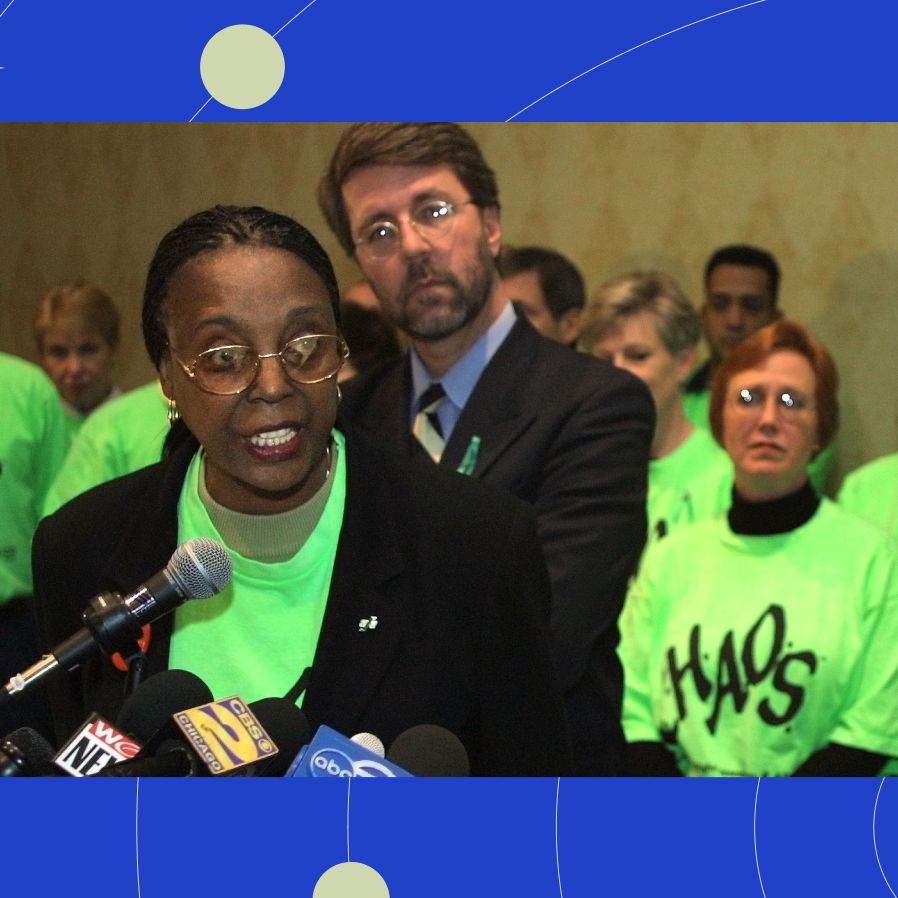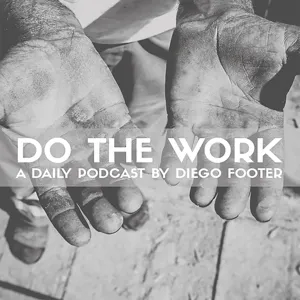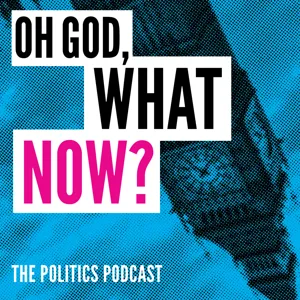Podcast Summary
A union's unconventional tactics in a labor dispute: Unconventional strategies in labor disputes can lead to legal battles and innovative tactics, challenging the status quo and resulting in significant advancements in economics and business.
Just as unexpected strategies have changed the game in sports, they have also transformed labor disputes. A notable example occurred 30 years ago when an airline faced off against a resourceful union. Instead of traditional striking tactics, the union employed a novel approach that challenged the status quo, leading to legal battles and unconventional tactics. This case study continues to influence modern labor disputes. In economics and business, as in sports, the most significant advancements often come from those who dare to defy conventions and innovate in unexpected ways.
Companies can use legal loopholes to fire striking workers and replace them with permanent replacements: During labor disputes, companies may attempt to exploit legal loopholes to terminate striking workers and hire permanent replacements, potentially leaving strikers without income for an extended period.
During labor disputes, companies can use legal loopholes to effectively fire striking workers and replace them with permanent replacements, leaving the strikers without income for an extended period. This was exemplified by TWA in 1986 when they replaced thousands of striking flight attendants, a move that other airlines began to adopt. During negotiations for a new contract for Alaska Airlines flight attendants in 1993, the potential for this tactic loomed large, and the union had to strategize carefully to avoid a similar outcome. Gale Bigelow, an Alaska Airlines flight attendant and union negotiator, recalled the tense negotiations and the importance of finding a solution that didn't put their members in the same precarious position as the TWA flight attendants.
Union's 'chaos' tactic during labor disputes: Unions can create uncertainty and chaos in operations to pressure management during labor disputes, without technically engaging in a strike.
During labor disputes, unions can employ unconventional tactics to put pressure on management without technically engaging in a strike. This was demonstrated during the Alaska Airlines flight attendants' labor dispute in 1993, when they employed a strategy called "chaos." By publicly announcing their intention to strike without revealing specifics, they created uncertainty and chaos within the airline's operations, forcing management to prepare for potential strikes on any flight at any moment. This strategy, inspired by Sun Tzu's "Art of War," allowed the union to put pressure on the airline without actually going on strike, effectively turning the tables on their more powerful opponent.
Alaska Airlines' Union Threatens 'Chaos Strategy' During Negotiations: The Alaska flight attendants union is applying pressure on their employer by threatening to strike, causing uncertainty and economic harm without officially doing so, and plans to continue this strategy until a real strike occurs.
The Alaska flight attendants union is using a unique strategy to exert pressure on their employer during negotiations. Instead of officially striking, they are threatening to do so, causing uncertainty and chaos for passengers and resulting in decreased bookings for the airline. This tactic, which the union refers to as "chaos strategy," aims to keep the airline and passengers guessing, causing economic harm without the union suffering the same consequences. The union's negotiator, Gail Bigelow, has stated that this strategy is working better than expected, with people contacting her directly to plead against a strike on their flights. The union plans to continue this strategy until a real strike occurs, at which point the airline will be prepared with management personnel trained as flight attendants to minimize disruption.
Preparing for a Flight Attendant Strike: Alaska Airlines trained managers as temporary flight attendants and held a job fair to build a reserve workforce during a potential strike, ensuring business continuity
Being a flight attendant involves more than just safety demos and serving snacks. It requires extensive training, including memorizing a large safety manual and learning the least risk bomb location on an aircraft. Alaska Airlines prepared for a potential strike by training managers to step in as temporary flight attendants and even held a job fair to build a reserve workforce, despite not having any open positions at the time. This strategy allowed Alaska to keep flights running during the strike and eventually replace the striking attendants with a new workforce.
Labor Dispute Strategies: Alaska Airlines vs Flight Attendants: During labor disputes, unions may employ chaotic strategies like constant strike threats or actual strikes with the risk of permanent replacement to disrupt operations and gain an advantage.
During a labor dispute between Alaska Airlines and its flight attendants in the 1990s, the union employed a chaotic strategy to pressure the airline into better negotiations. The first phase involved constant strike threats without actually striking. In the second phase, they decided to go through with the strike, but faced the risk of permanent replacement. Gail Bigelow, a union leader, carefully selected flight attendants willing to strike and put them on a "guts list." The moment of truth came when a fully booked flight was scheduled to leave with a guts list crew. Jennifer Price, one of the selected flight attendants, was informed that her crew would be striking. The union's chaotic strategy aimed to disrupt Alaska Airlines' operations and potentially find a way to strike without getting replaced, but the outcome was uncertain until the strike actually occurred. This tale illustrates the complexities and risks involved in labor disputes and the innovative strategies employed by both sides to gain an advantage.
Intermittent Striking: Chaos for Companies: Unions can save jobs by using intermittent striking to create chaos for companies, making it difficult for them to permanently replace striking workers
Unions can effectively use intermittent striking as a tactic to make it difficult for companies to permanently replace striking workers. In the given situation, flight attendants, led by Jennifer Price, engaged in a 28-minute strike on a single flight, which allowed them to return to their jobs before the company could permanently replace them. This strategy, known as intermittent striking, creates chaos for the company and requires them to constantly scramble to fill in for the striking workers. This tactic was successful for the union in this instance, allowing them to save the jobs of the striking flight attendants.
Alaska Airlines vs Flight Attendants: The Power of Unconventional Tactics: During a labor dispute, unconventional tactics like intermittent striking can be effective, but understanding the legal framework is crucial to avoid job losses or income loss.
During a labor dispute between Alaska Airlines and its flight attendants, the union employed an unconventional tactic of intermittent striking, causing chaos and disruption to the airline's operations. Alaska Airlines responded by threatening to terminate striking employees, leading to a legal battle where the court ruled in favor of the union, allowing intermittent striking as a protected right. The union's strategy proved effective, leading to a contract with a substantial raise for the flight attendants, without any job losses or income loss for those who participated in the strikes. This chaotic approach has not been replicated in other strikes due to different legal rules governing various types of labor disputes. Overall, this case demonstrates the power of unconventional tactics and the importance of understanding the legal framework surrounding labor disputes.
UAW's Chaotic Strike Strategy: A Tactical Approach from the 1990s: The UAW's chaotic strike strategy creates uncertainty for all parties, putting pressure on management to negotiate quickly, potentially leading to more favorable outcomes for the union.
The United Auto Workers (UAW) union's current strike strategy, which involves striking at various locations and without a clear end date, is reminiscent of the chaos strike from 30 years ago used by Alaska flight attendants. This strategy creates uncertainty for all parties involved, including workers, management, and the public. The UAW's President, Sean Fane, has been introducing chaos into the labor dispute by striking at different plants without a clear pattern or end in sight. This strategy was also used by the Alaska flight attendants in the 1990s, leaving everyone guessing about the next target and the duration of the strikes. The uncertainty created by this strategy puts pressure on management to negotiate quickly, potentially leading to more favorable outcomes for the union. The current UAW strike is ongoing, and it remains to be seen how long it will last or which companies will be targeted next.






